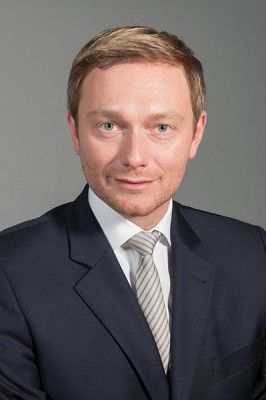Yesterday the Christian Democratic Union (CDU) got the most votes for the European Parlament in Germany, but they suffered some losses like their sister party the Christian Social Union (CSU). The Social Democratic Party (SPD) improved their result decisively but has been left behind by the CDU. The Free Democratic Party (FDP) is the main loser of the EP election 2014 in Germany. The Greens also lost votes whereas the Left Party (Die Linke) position is almost unchanged. Not unexpected the new Alternative for Germany (AfD) was the winner of the election. With 48 percent the turnout was better than in 2009.
From a liberal point of view the results are a mixed bag:
The SPD successfully activated additional votes (27.8%,+6.5) pleading their constituents only by the argument that by voting for their top candidate Martin Schulz Germans would get a German president of the EU-Commission. In addition the joint position of the CDU/CSU (30%,-0,6/5.3%,-1.9) regarding the European Union, their coalition partners in the German Government, is seen by considerable amount of voters as inconsistent. Therefore more voters as in 2009 pin their hope for representation in the European Parliament on the SPD. Considering the strong position in earlier elections this result is rather a comeback than a decent result.
Similar to their Bundestag election result in the last year the Greens again were losing ground (10.7%,-1.4). Their political agenda, mainly focusing on energy policy and environmental protection, was damaged by the failure of the German energy transition. In addition other parties are climbing on the ecologic bandwagon too, cutting of the unique selling proposition of the Greens. Fewer voters seem to believe that the Greens are willing to advance a solution to the boiling energy policy conflict between Germany and its EU-partners. Meanwhile the Greens leftist social policy profile was hijacked by the Left Party. The result of the Lefts is more or less unchanged (7.4%, -0.1).
Extremely disappointing is the performance of the FDP (3.4%,-7.6), even accounting for their landslide loss in the last years Bundestag election. Obviously the liberals couldn’t convince the voters that their positions regarding economic policy, energy policy and civil rights are relevant in the European Parliament. Many voters lament the lack of a clear political profile. In addition their pro-European agenda seems to be in conflict with the growing skepticism towards political centralization in the European Union seizing their middle-class constituents. The new conservative and Euro-sceptic AfD achieved right from the start seven percent of the votes. They are supposed to strengthen subsidiarity and national interests in the European Parliament.
The most interesting result is the emergence of the AfD as serious political force. Germany’s liberals face a tough challenge for the years to come: By focusing on a credible pro-European, pro-market and pro-subsidiarity agenda they should try to win back the votes of those Germans who believe in limited government and the pursuit of self fulfillment.



